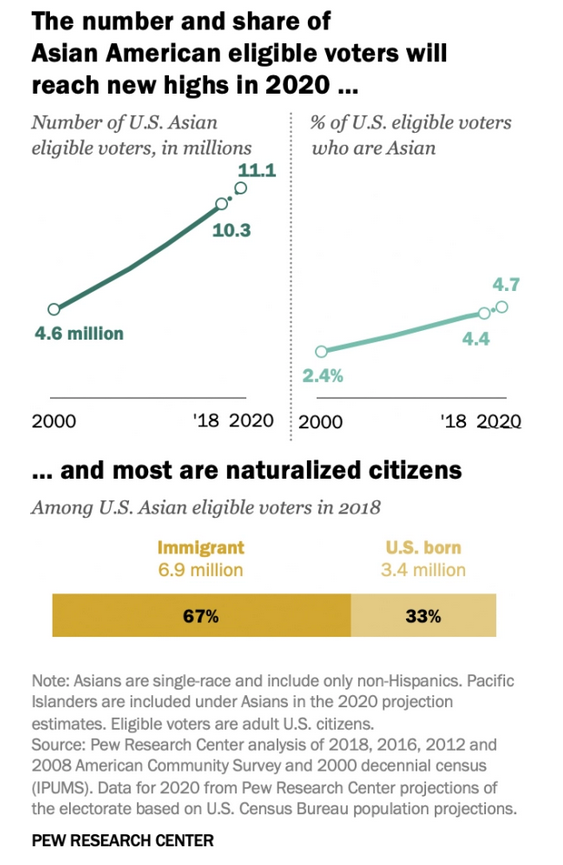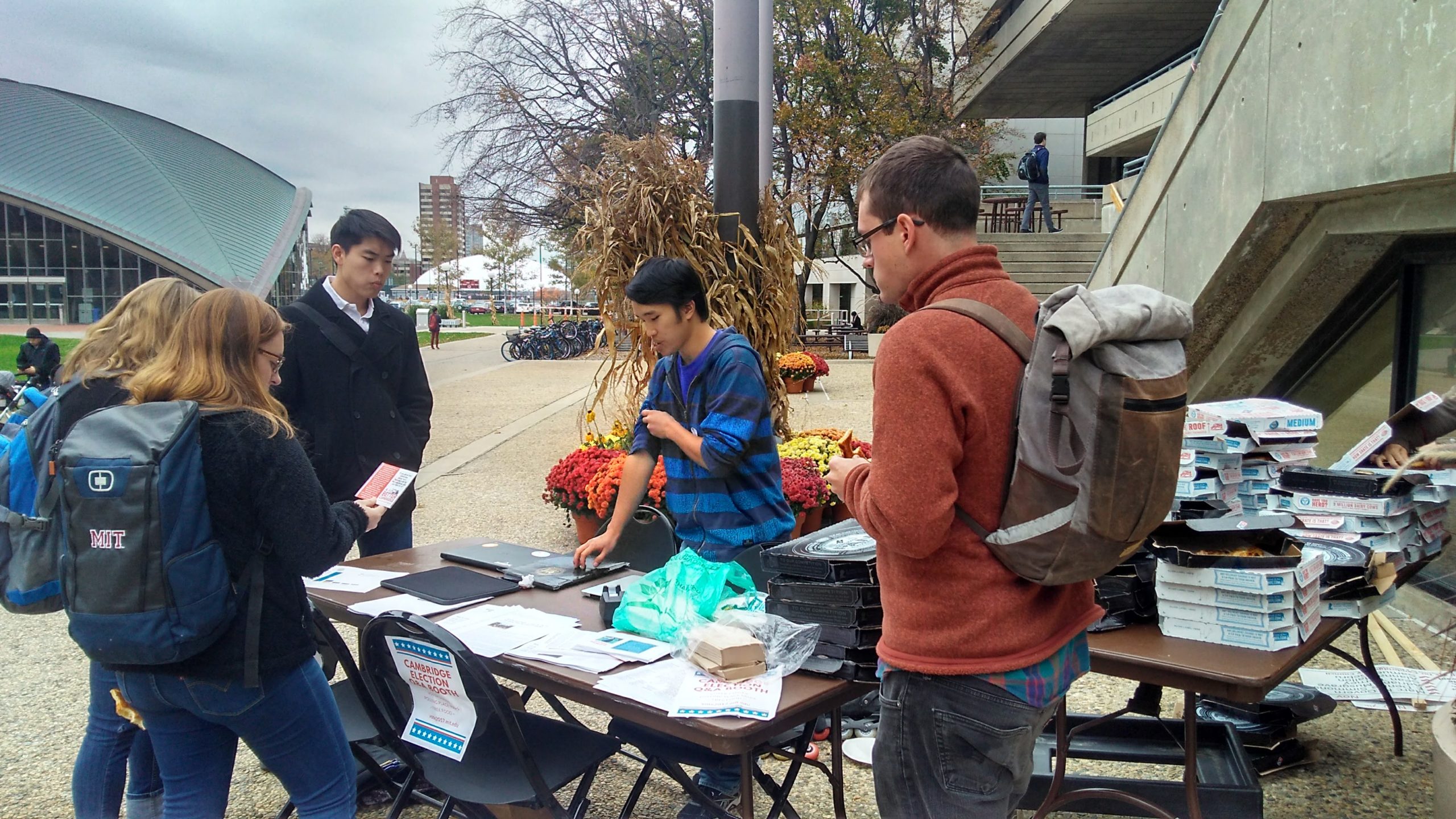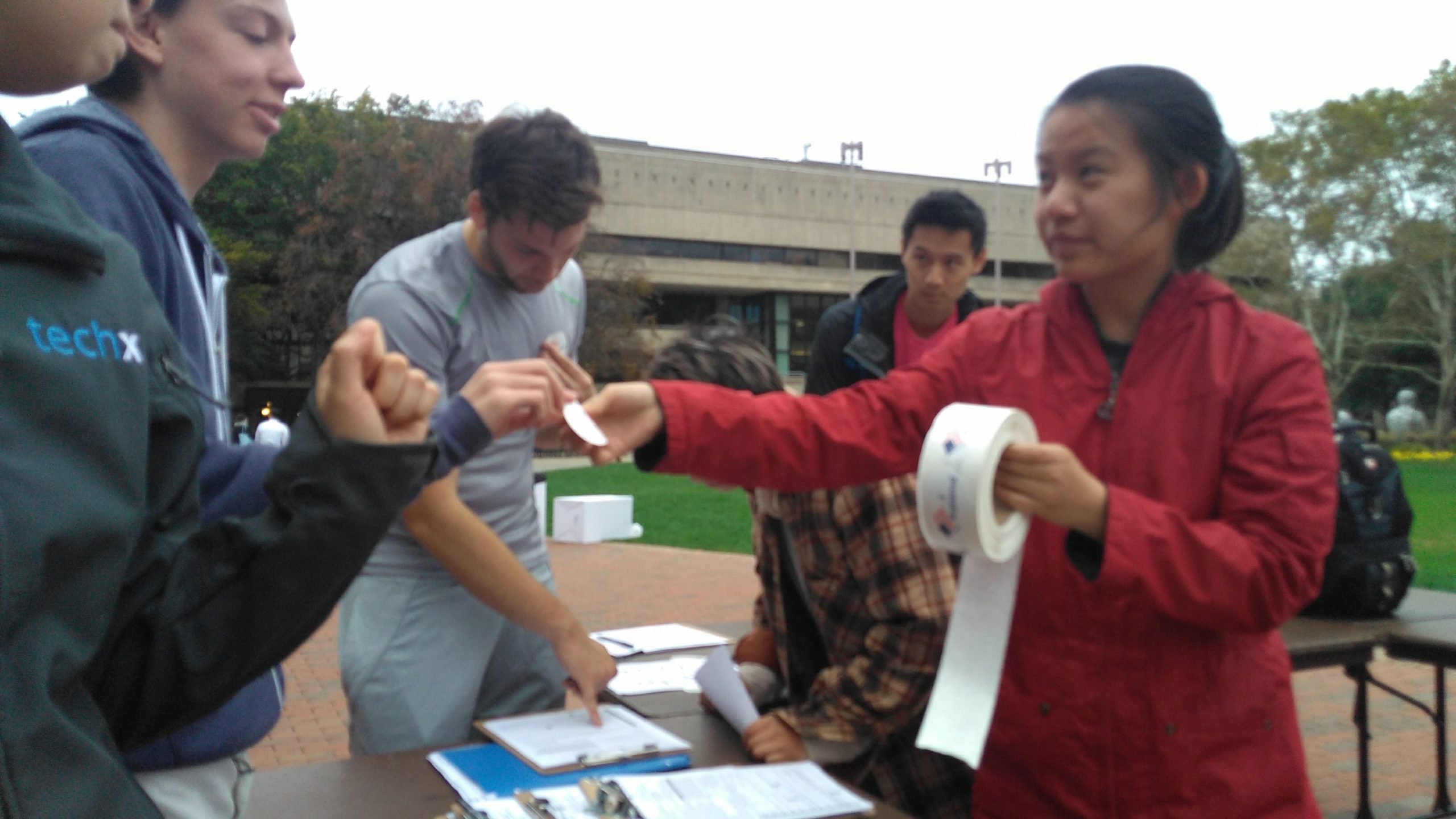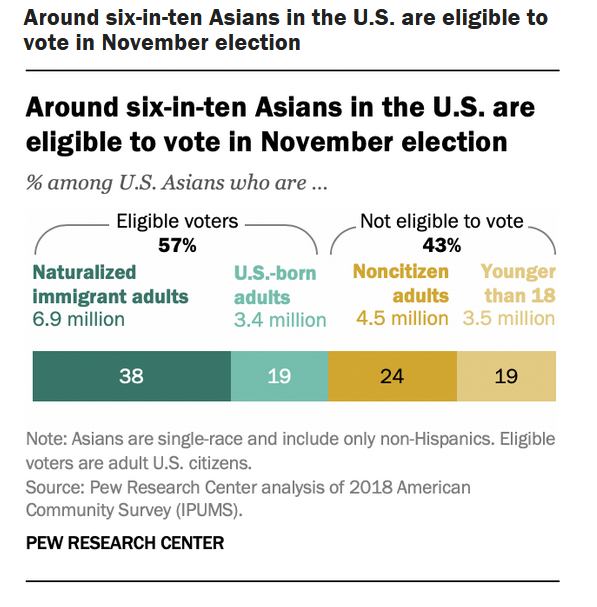How I Learned the Power of the Asian American Vote
For me, the last two months have been Zoom meetings by day, Netflix by night. Painfully relatable was Taylor Tomlinson’s “Quarter-Life Crisis” as the days blur together.
There was also something else I found relatable: The “Patriot Act” episode called “Don’t Ignore the Asian American Vote in 2020.”
As an Asian American, I don’t feel like my community has been very politically engaged. Culturally, it’s common among my generation to say that we were raised to keep our head down, work hard, and value education to secure a stable future. That was definitely the view my parents raised me with.
And that’s exactly what Andrew Yang, the recent Democratic candidate for President, says while talking to “Patriot Act” host Hasan Minhaj:
“I think I grew up like a lot of other Asian American kids of our generation, where my parents certainly didn’t emphasize American politics that much, and they didn’t present it as something that my brother and I should necessarily be trying to get into ourselves.”
When asked why he thought so many Asian Americans don’t find politics relevant to their lives, Yang said:
“I think for most children of immigrants, our mission is to do well in school and get good grades then get a good job and make some money. And politics doesn’t necessarily fit into that vision.”
The data backs that up, too.
Hasan, also a member of this community, calls out here that our turnout is reliably the lowest of any racial group. But he also shares that there’s another, bigger, reason and that is just not being included.
In summary not being included can look like this:
- Not seeing your first language on any ballot, form to register to vote, and/or signage reminding you of an election;
- Not hearing your first language from any candidate, campaign staff & volunteers, who also don’t look or share cultural connections with you;
- Even if English is your first language, the issues don’t speak to your core values and connect to your everyday life
During the episode, Mary Anne Foo from the Orange County Asian Pacific Islander Community Alliance quotes that during phone banks she hears “no one has ever called me ‘in language,’ in my native language. No one else is outreaching to us.”
It’s also extra challenging because, as Hasan shares, there are also 19 different ethnicities of “Asian.” And if we’re the lowest propensity voters, the cycle continues of the political world not seeing incentive to include us and then we don’t engage.
However, Asian Americans are also the fastest-growing demographic of eligible voters compared to all other major races and ethnicities according to Pew and the only group with a majority of naturalized immigrants. 71 percent of our eligible voting population rate themselves as comfortable and fluent in English.
So whoever does get it right is going to have real power. Power in the form of “more than 11 million people”, to change swing districts and move entire communities.

We already saw this potential during the 2018 midterm elections when our turnout jumped 16 percentage points, from 26.9 to 40.2 percent, according to Pew.
I saw this firsthand, too when I was at MIT, a STEM school with a lot of Asian Americans and internationals. My Asian-American friends were some of the first to step up when I was trying to organize voter registration drives and education around the local elections. There was even an Asian-American student running for local office.
It’s one of the most powerful memories I have, seeing peers that didn’t have an opportunity to engage before, step up and take lead.


It showed me that part of being an Asian American means that I have an opportunity to take the best of what that means and synergize it with values I grew up with.
I get to value community, taking care of one another, and the freedom to express myself.
I get to value hard work, education, and make a difference in society.
This growth extends back to my family, too.
I asked my brother, who just turned 18 and is a fellow gamer who just passed 400+ hours on “Monster Hunter,” if he knew how to absentee ballot vote from college. He didn’t skip a beat and said “Yeah, I know how to do that. My High School Government teacher was awesome and showed me how much it actually matters. I didn’t really care before that.”
I did not know that you had to register to vote until I was 19 — that was just three years ago. Hearing that gave me hope.
Even better, after almost 20+ years of citizenship, my mom voted for the first time in 2016 and convinced my dad, too. Both had been previously vocal in how I was “wasting my time” in politics.
Our immigrant parents were rightly focused on survival and making the sacrifices for us to thrive. But we can also build on their sacrifice by being fully integrated into society, understanding how to change it, and being represented by its political powers. To me, it also means doing everything I can to include them in feeling like they do belong here.
Their generation is still the largest share of Asian-Americans in the U.S. and a majority of the eligible voters. We can’t give up on them.

I want others to be empowered like I was and to pass it forward by empowering their friends and their family. Already AAPI organizations and community centers are becoming more established, even if they’re not as well-funded yet. We’re seeing more languages of registration forms, ballots, and representation of elected officials, and even a presidential candidate!
To me, its not just a vote or an election, but it’s about the value of an American Dream where an immigrant can truly belong and make a difference. With almost every successful civil rights movement, it starts with our generation.
I want to believe that my experience is indicative of a broader possibility. That even though there are reasons we haven’t been engaged before, that doesn’t mean it has to be that way tomorrow.
—————–
More communities are starting to believe in our collective power and you and your organization can also be a part of that!
Here are just a few examples of great organizations doing that work already:
Asian Americans Advancing Justice
ASIA – Asian Services in Action
… and so many, many more.




